Below is a list of all lectures. Click on the buttons below to hide the categories of lectures you are not interested in.
- WORKSHOP
- 09:00 - 10:00
- 60 min

- WORKSHOP
- 10:00 - 11:30
- 90 min
- Workshop A
-
 Patryk Mlyniuk
Patryk Mlyniuk
- WORKSHOP
- 10:00 - 11:30
- 90 min
- Workshop B
-
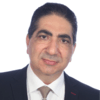 Kyriakos Telamitsi
Kyriakos Telamitsi
- WORKSHOP
- 10:00 - 11:30
- 90 min
- Workshop C
-
 Joseph J. Pizzimenti
Joseph J. Pizzimenti
- WORKSHOP
- 10:00 - 11:30
- 90 min
- Workshop D
-
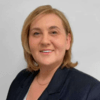 Anita Glinka
Anita Glinka -
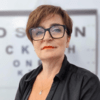 Magdalena Mikulec-Dąbrowska
Magdalena Mikulec-Dąbrowska
- WORKSHOP
- 10:00 - 11:30
- 90 min
- Plenary Room
-
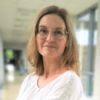 Maria Szwajkowska
Maria Szwajkowska -
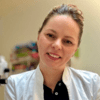 Magdalena Rogowska-Roszczyk
Magdalena Rogowska-Roszczyk
- WORKSHOP
- 10:00 - 11:30
- 90 min
- Warsztat E
-
 Joanna Zdybel
Joanna Zdybel
- WORKSHOP
- 11:30 - 12:00
- 30 min

- WORKSHOP
- 12:00 - 13:30
- 90 min
- Workshop A
-
 Patryk Mlyniuk
Patryk Mlyniuk
- WORKSHOP
- 12:00 - 13:30
- 90 min
- Workshop B
-
 Kyriakos Telamitsi
Kyriakos Telamitsi
- WORKSHOP
- 12:00 - 13:30
- 90 min
- Workshop C
-
 Joseph J. Pizzimenti
Joseph J. Pizzimenti
- WORKSHOP
- 12:00 - 13:30
- 90 min
- Workshop D
-
 Joanna Zdybel
Joanna Zdybel
- WORKSHOP
- 12:00 - 13:30
- 90 min
- Plenary Room
-
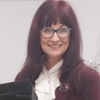 Marzena Żółtaniecka
Marzena Żółtaniecka
- WORKSHOP
- 12:00 - 13:30
- 90 min
- Warsztat E
-
 Hanna Buczkowska
Hanna Buczkowska
- WORKSHOP
- 13:30 - 14:30
- 60 min
- WORKSHOP
- 14:30 - 16:00
- 90 min
- Workshop D
- WORKSHOP
- 14:30 - 16:00
- 90 min
- Workshop A
-
 Hanna Buczkowska
Hanna Buczkowska

- WORKSHOP
- 14:30 - 16:00
- 90 min
- Workshop C
-
 Camille Schmitt
Camille Schmitt
- WORKSHOP
- 14:30 - 16:00
- 90 min
- Workshop B
-
 Anna Maria Ambroziak
Anna Maria Ambroziak
- WORKSHOP
- 14:30 - 18:00
- 210 min
- Plenary Room
-
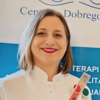 Ewa Witowska-Jeleń
Ewa Witowska-Jeleń -
 Joanna Zdybel
Joanna Zdybel -
 Klaudia Rakusiewicz-Krasnodębska
Klaudia Rakusiewicz-Krasnodębska -
 Marzena Żółtaniecka
Marzena Żółtaniecka -
 Maria Szwajkowska
Maria Szwajkowska -
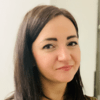 Kamila Kucharska
Kamila Kucharska -
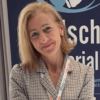 Maja Urzędowska
Maja Urzędowska -
 Beata Szczepaniak
Beata Szczepaniak -
 Joanna Zdybel
Joanna Zdybel -
 Matic Vogric
Matic Vogric
14:30 – 14:40
Joanna Zdybel – otwarcie sesji
14:40 – 15:00
Ewa Witowska – Jeleń: Postępowanie ortoptyczne w udarze niedokrwiennym w zakresie tętnicy tylnej mózgu - prezentacja przypadku.
15:00 – 15:20
Klaudia Rakusiewicz: Zez nagły u dziecka – od obrazu klinicznego do diagnozy.
15:20 – 15:40
Marzena Żółtaniecka: Korespondencja siatkówkowa w przedoperacyjnej diagnostyce ortoptycznej.
15:40 – 16:00
Maria Szwajkowska: Zaburzenia ustawienia oczu u dzieci z kraniosynostozami.
16:00 – 16:15 Dyskusja
16:15 – 16:40 Przerwa
16:40 – 17:00
Kamila Kucharska: Praktyczne aspekty kontroli krótkowzroczności u dzieci z zezem.
17:00 – 17:20
Maja Urzędowska: Zaburzenia (rozwojowe) przetwarzania wzrokowego: klasyfikacja – diagnostyka -terapia.
17:20 – 18:00
Beata Szczepaniak: Wpływ odruchów pierwotnych na układ wzrokowy i implikacje w procesie terapii widzenia.
18:00 – 18:20
Joanna Zdybel: Od zasłonki do tabletu - metody leczenie niedowidzenia w praktyce.
18:20 – 18:40
Matic Vogric: Nowoczesne metody leczenia niedowidzenia.
18:40 Dyskusja, zakończenie sesji.
- WORKSHOP
- 16:00 - 16:30
- 30 min
- WORKSHOP
- 16:30 - 18:00
- 90 min
- Workshop D
- WORKSHOP
- 16:30 - 18:00
- 90 min
- Workshop A
-
 Hanna Buczkowska
Hanna Buczkowska

- WORKSHOP
- 16:30 - 18:00
- 90 min
- Workshop C
-
 Camille Schmitt
Camille Schmitt
- WORKSHOP
- 16:30 - 18:00
- 90 min
- Workshop B
-
 Anna Maria Ambroziak
Anna Maria Ambroziak
- WORKSHOP
- 18:00 - 18:30
- 30 min
- INNE
- 08:00 - 09:00
- 60 min
- WYKŁADY
- 09:00 - 09:40
- 40 min
- Plenary Room
- WYKŁADY
- 09:40 - 10:25
- 45 min
- Plenary Room
-
 Ryszard Naskręcki
Ryszard Naskręcki
- WYKŁADY
- 10:25 - 11:10
- 45 min
- Plenary Room
-
 Jacek Pniewski
Jacek Pniewski

- WYKŁADY
- 11:10 - 11:30
- 20 min
- Plenary Room
- INNE
- 11:30 - 12:00
- 30 min

- WYKŁADY
- 12:00 - 12:15
- 15 min
- Plenary Room
- WYKŁADY
- 12:15 - 12:45
- 30 min
- Plenary Room
Sylwia Kijewska

- WYKŁADY
- 12:45 - 13:00
- 15 min
- Plenary Room
- WYKŁADY
- 13:00 - 13:30
- 30 min
- Plenary Room
- INNE
- 13:30 - 14:30
- 60 min
- WYKŁADY
- 14:30 - 15:00
- 30 min
- Plenary Room
-
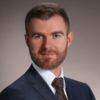 Grzegorz Wymysłowski
Grzegorz Wymysłowski

- WYKŁADY
- 15:00 - 15:15
- 15 min
- Plenary Room
-
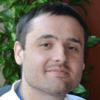 Tomasz Suliński
Tomasz Suliński
- WYKŁADY
- 15:15 - 16:00
- 45 min
- Plenary Room
-
 Kyriakos Telamitsi
Kyriakos Telamitsi
- INNE
- 16:00 - 16:30
- 30 min
- WYKŁADY
- 16:30 - 16:45
- 15 min
- Plenary Room
J. Rzeszewska-Zamiara, P. Stępniewski

- WYKŁADY
- 16:45 - 17:00
- 15 min
- Plenary Room
- WYKŁADY
- 17:00 - 17:15
- 15 min
- Plenary Room
B. Lewandowska
- WYKŁADY
- 17:15 - 17:45
- 30 min
- Plenary Room
- WYKŁADY
- 17:45 - 18:00
- 15 min
- Plenary Room
- WYKŁADY
- 09:00 - 09:30
- 30 min
- Plenary Room
B. Lewandowska
- WYKŁADY
- 09:30 - 09:45
- 15 min
- Plenary Room
S. Rostkowska, A. Kowalik, A. Nowosielska Wpływ nużeńca na powstanie suchego oka u pacjentów,
M. Soczek Diagnostyka powierzchni oka u pacjentów z zaburzeniami metabolizmu glukozy – analiza przypadków klinicznych
- WYKŁADY
- 09:45 - 10:30
- 45 min
- Plenary Room
-
 Robert Andersson
Robert Andersson
- WYKŁADY
- 10:30 - 10:45
- 15 min
- Plenary Room
A. Szymańska et.al
- WYKŁADY
- 10:45 - 11:30
- 45 min
- Plenary Room
-
 Joseph J. Pizzimenti
Joseph J. Pizzimenti
- INNE
- 11:30 - 12:00
- 30 min
- WYKŁADY
- 12:00 - 12:45
- 45 min
- Plenary Room
-
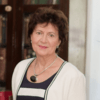 Bożena Romanowska-Dixon
Bożena Romanowska-Dixon
- WYKŁADY
- 12:45 - 13:30
- 45 min
- Plenary Room
-
 Robert Andersson
Robert Andersson
- INNE
- 13:30 - 14:30
- 60 min
- WYKŁADY
- 14:30 - 15:00
- 30 min
- Plenary Room
-
 Grzegorz Wymysłowski
Grzegorz Wymysłowski
- WYKŁADY
- 15:00 - 15:35
- 35 min
- Plenary Room
- WYKŁADY
- 15:35 - 16:00
- 25 min
- Plenary Room
S. Zielonka Jak dobrać metodę badania refrakcji do pacjenta: wnioski na podstawie EBM,
M. Uzdrowska Dlaczego warto oceniać widzenie obuoczne przy kwalifikacji do laserowej korekcji wzroku?,
P. Mazur Z drugiej strony foroptera – jak ograniczenie wzroku może poszerzyć nasze spojrzenie na pacjenta
- INNE
- 16:00 - 16:30
- 30 min
- WYKŁADY
- 16:30 - 17:15
- 45 min
- Plenary Room
-
 Joanna Przeździecka - Dołyk
Joanna Przeździecka - Dołyk
- WYKŁADY
- 17:15 - 17:30
- 15 min
- Plenary Room
J. Burszewska
- WYKŁADY
- 17:30 - 17:45
- 15 min
- Plenary Room
B. Lewandowska Optimizing Dry Eye Disease Management: A Pharmacological Approach for Optometrists,
D. Olkowska, K. Abramczuk Suplementacja w utrzymaniu homeostazy wzrokowej
- WYKŁADY
- 17:45 - 18:00
- 15 min
- Plenary Room

